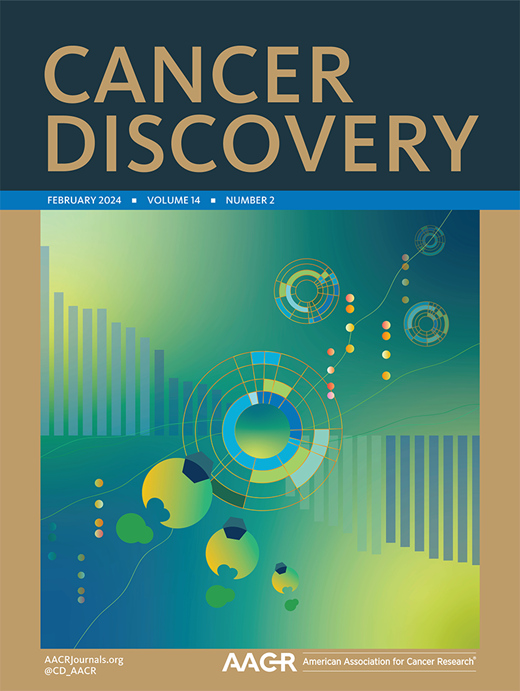Chronic viral mimicry induction following p53 loss promotes immune evasion
IF 29.7
1区 医学
Q1 ONCOLOGY
引用次数: 0
Abstract
Epigenetic therapies facilitate transcription of immunogenic repetitive elements that cull cancer cells through ‘viral mimicry’ responses. Paradoxically, cancer-initiating events also facilitate transcription of repetitive elements. Contributions of repetitive element transcription towards cancer initiation, and the mechanisms by which cancer cells evade lethal viral mimicry responses during tumor initiation remain poorly understood. In this report, we characterize premalignant lesions of the fallopian tube along with syngeneic epithelial ovarian cancer models to explore the earliest events of tumorigenesis following loss of the p53 tumor suppressor protein. We report that p53 loss permits transcription of immunogenic repetitive elements and chronic viral mimicry activation that increases cellular tolerance of cytosolic nucleic acids and diminishes cellular immunogenicity. This selection process can be partially attenuated pharmacologically. Altogether, these results reveal that viral mimicry conditioning following p53 loss promotes immune evasion and may represent a pharmacological target for early cancer interception.p53缺失后的慢性病毒模仿诱导促进免疫逃避
表观遗传疗法促进免疫原性重复元件的转录,通过“病毒模仿”反应剔除癌细胞。矛盾的是,引发癌症的事件也促进了重复元素的转录。重复元件转录对癌症启动的贡献,以及癌细胞在肿瘤启动过程中逃避致命病毒模仿反应的机制仍然知之甚少。在本报告中,我们对输卵管癌前病变以及同基因上皮性卵巢癌模型进行了表征,以探索p53肿瘤抑制蛋白缺失后肿瘤发生的最早事件。我们报道p53缺失允许免疫原性重复元件的转录和慢性病毒模仿激活,从而增加细胞对胞质核酸的耐受性并降低细胞免疫原性。这种选择过程可以在药理学上部分减弱。总之,这些结果揭示了p53缺失后的病毒模仿条件反射促进了免疫逃避,可能代表了早期癌症拦截的药理学靶点。
本文章由计算机程序翻译,如有差异,请以英文原文为准。
求助全文
约1分钟内获得全文
求助全文
来源期刊

Cancer discovery
ONCOLOGY-
CiteScore
22.90
自引率
1.40%
发文量
838
审稿时长
6-12 weeks
期刊介绍:
Cancer Discovery publishes high-impact, peer-reviewed articles detailing significant advances in both research and clinical trials. Serving as a premier cancer information resource, the journal also features Review Articles, Perspectives, Commentaries, News stories, and Research Watch summaries to keep readers abreast of the latest findings in the field. Covering a wide range of topics, from laboratory research to clinical trials and epidemiologic studies, Cancer Discovery spans the entire spectrum of cancer research and medicine.
 求助内容:
求助内容: 应助结果提醒方式:
应助结果提醒方式:


